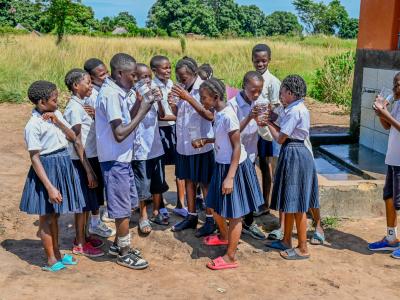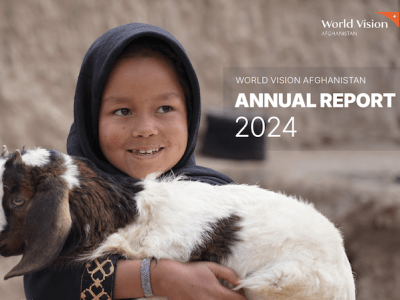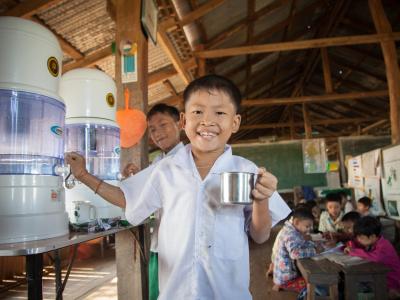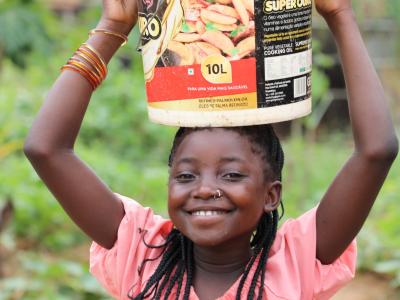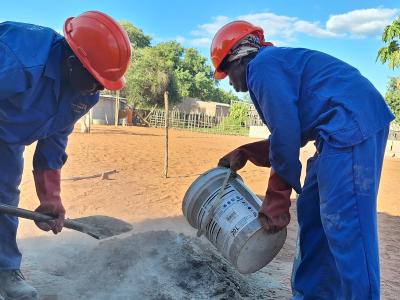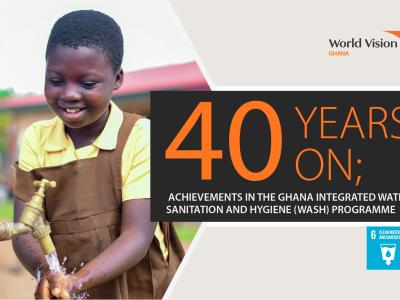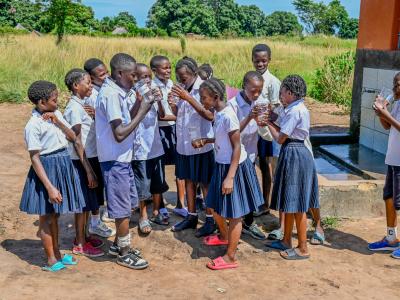article / April 22, 2025
DR Congo: How Clean Water and Small Cups Transformed Student Hygiene in Lualaba
This article is a powerful story highlighting how a modest intervention, a personal plastic cup, greatly improved hygiene, hydration, and learning conditions in four schools in the Lualaba province of the Democratic Republic of Congo. It recounts the longstanding lack of potable water at Amani Primary School in Mutshatsha and the transformative impact of a borehole installed in 2022, which gave over 1,600 students access to clean water. However, without drinking containers, students were still unable to hydrate safely and effectively. In early 2025, a donation of 3,625 plastic cups across four schools allowed students to drink water hygienically and comfortably. This simple addition significantly reduced water waste, improved hygiene, and helped students stay focused in class. The initiative, part of World Vision’s Gifts-In-Kind (GIK) program, illustrates the profound impact of addressing overlooked details in development work.
publication / April 24, 2025
World Vision Afghanistan: Country Profile FY24
World Vision Afghanistan works in 34 districts and over 3,200 villages across Herat, Badghis, Ghor, Faryab, and Nangahar provinces, reaching more than 1.2 million people in FY24, including over 547,000 children.
publication / April 24, 2025
Hope in Action: World Vision Afghanistan Annual Report | FY24
FY 24 Impact: World Vision Afghanistan worked across 34 districts and more than 3,200 villages across Herat, Badghis, Ghor, Faryab, and Nangahar provinces, delivering critical assistance to over 1.2 million people, nearly half of them children. Read the full report.
article / April 23, 2025
More Than Water: Borehole Transforms Aurora’s Health and Schooling
11-year-old Aurora's life changed after World Vision built a borehole near her home in the north of Mozambique, eliminating her daily hour-long walk for unsafe water. This improved her school attendance and the community's access to clean water for better health and farming. Serving 400 people, this project is part of a larger WASH program that has positively impacted over 14,700 individuals in the region.
article / April 15, 2025
Women Lead the Journey to Solve Sanitation Issues in Southern Mozambique
In Mozambique, women are leading a quiet revolution—defying social stereotypes by taking on the construction of improved latrines, a field traditionally dominated by men. Through their work, they are not only tackling the urgent challenge of inadequate sanitation but also breaking down long-held beliefs that such tasks are solely a man's job.
publication / February 18, 2025
40 YEARS ON; ACHIEVEMENTS IN THE GHANA INTEGRATED WATER, SANITATION AND HYGIENE (WASH) PROGRAMME
In our ongoing quest to improve access to Water, Sanitation, and Hygiene (WASH) a fundamental necessity for safe, healthy living and the socio-economic development of communities, World Vision Ghana has implemented a number of impactful interventions.
article / April 22, 2025
RD Congo : Comment l’Eau Potable et de Petits Gobelets ont Transformé l’Hygiène des Elèves à Lualaba
Cet article raconte comment une intervention modeste, un gobelet en plastique personnel, a considérablement amélioré l'hygiène, l'hydratation et les conditions d'apprentissage dans quatre écoles de la province de Lualaba, en République démocratique du Congo. L'article relate l'absence d'eau potable à l'école primaire Amani de Mutshatsha et l'impact transformateur d'un forage installé en 2022, qui a permis à plus de 1 600 élèves d'avoir accès à de l'eau propre. Cependant, sans récipients pour boire, les élèves n'étaient toujours pas en mesure de s'hydrater efficacement et en toute sécurité. Début 2025, un don de 3 625 gobelets en plastique répartis dans quatre écoles a permis aux élèves de boire de l'eau de manière hygiénique et confortable. Ce simple ajout a permis de réduire considérablement le gaspillage d'eau, d'améliorer l'hygiène et d'aider les élèves à rester concentrés en classe. Cette initiative, qui s'inscrit dans le cadre du programme Gifts-In-Kind (GIK) de World Vision, illustre l'impact profond de la prise en compte de détails négligés dans le travail de développement.
